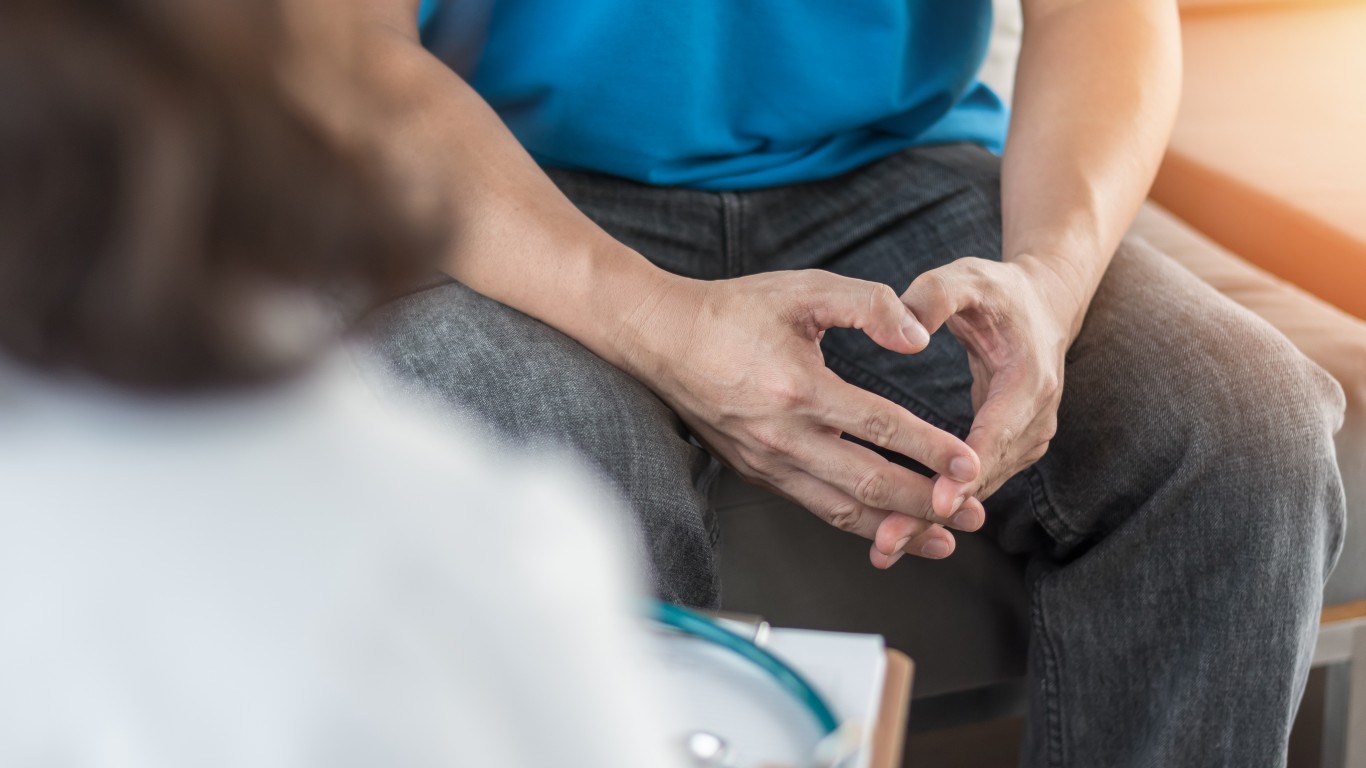Health and Healthcare
It Might Be Possible to Identify Mental Illness With an Online Test

Published:
Last Updated:

Mental illness is a pervasive problem nationwide. According to this infographic on mental health facts in America published by the National Alliance on Mental Illness. About one in five U.S. adults suffers from some form of it in a given year, and for about one in 25, the problems are serious enough that they substantially interfere with or limit major life activities.
Before mental illness can be treated, of course, it has to be identified, whether its depression, schizophrenia, bipolar disorder, or any other affliction.
At least one study has shown that too much social media time may add to depression. But the digital world can also help: There is now a personalized and highly efficient online screening tool that can identify and monitor mental health conditions both in a clinical setting and in other environments.
The program, developed by Dr. Robert Gibbons, Blum-Riese Professor in the University of Chicago’s departments of medicine and public health services, is called Computerized Adaptive Testing for Mental Health Disorders, or CAT-MH.
“Traditional mental health measures use a fixed set of items or symptoms that are the same for every person you test,” Gibbons told the UChicagoMedicine website. CAT-MH, on the other hand, gauges the subject’s condition based on his or her responses to the questions to that point in the test, “then selects the next optimal question from a large bank of potentially hundreds of items.”
To measure the severity of depression, for instance, the test can draw from a bank of nearly 400 questions. On average, according to the UChicagoMedicine site, it can diagnose depression with only four questions and measure its severity if it’s detected with another eight — all in about two minutes’ time. The results are said to be as accurate as if the same person had an hour-long clinical interview and answered many more questions.
“People could be screened in the comfort of their own home and not be influenced by the medical assistant being present,” said Neda Laiteerapong, UChicagoMedicine’s associate director for primary care-behavioral health integrations. “If they screen positive for depression, our health care team reaches out and brings them in for care if needed.”
The use of online resources for diagnosing medical conditions is controversial, and it remains to be seen if these tools will become sophisticated enough to serve as an adequate supplement, let alone replacement, for in-person doctor visits. While the future of online medicine is less than certain, here are some technologies that are guaranteed to shape our future.
Mental illness is one of the problems causing major concern in the medical community, though it’s certainly not the only one. These are the most serious public health issues America is facing today.
Thank you for reading! Have some feedback for us?
Contact the 24/7 Wall St. editorial team.